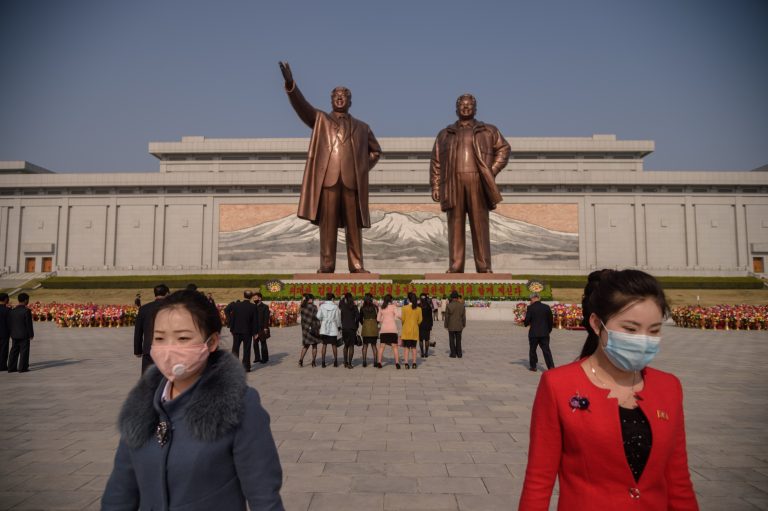North Korea is experiencing a food crisis after imports from China dropped by approximately 90 percent between April and May this year, a situation that North Korean dictator, Kim Jong-un, described as “getting tense,” according to state media.
Last week, the Korean Central News Agency (KCNA) reported Kim as saying that “the people’s food situation is now getting tense as the agricultural sector failed to fulfill its grain production plan due to the damage by typhoon last year.”
In the aftermath of a damaging typhoon last growing season, and amidst the current global COVID-19 pandemic, prices for corn and white rice soared amidst reports that a single kilogram of bananas costs as much as US$45.00 in the country.
It’s suspected that paranoia over COVID-19 most likely contributed to North Korea closing its border with China in Jan. 2020, worsening an already dire food crisis and making it difficult for North Korean farmers to procure fertilizer.
In May, North Korea imported a total of US$2.7 million worth of foodstuffs, a significant decrease from a high of US$28.78 million the previous April, according to China’s General Administration of Customs (GAC).
Success
You are now signed up for our newsletter
Success
Check your email to complete sign up
“The UN’s Food and Agriculture Organization estimated in a report that North Korea would be short about 860,000 tons of food this year, about two months of normal demand,” Radio Free Asia (RFA) reported.
North Korea preparing for a second ‘Arduous March’
COVID-19 restrictions are reportedly making it difficult for food aid organizations to operate in the country as well.
The North Korean leader is reported to have asked his officials and people to “wage another, more difficult “Arduous March.”
The words, “Arduous March” were last used to describe a period of time in the 1990s when the country suffered mass starvation after the collapse of the Soviet Union, North Korea’s only reliable ally, left the country without crucial aid.
In the face of widespread famine the country’s leader “ordered the nation’s capabilities to focus on agriculture and food security.” reported Radio Free Asia.
The situation is so grim that farmers were purportedly asked to donate 2 liters (about a half a gallon) of their own urine daily to help in the production of fertilizer.
An estimated 13,700 housewives from all regions of the country were ordered to toil in the fields in the country’s southwestern coastal province of South Hwanghae, which is considered to be the country’s breadbasket, in an effort to boost food production.
The women are being described as “voluntary participants,” but sources familiar with the situation describe their participation in a different light.
Park Jihyun, a rights activist who escaped North Korea and settled in the U.K. told RFA that in reality “nobody wants to go,” adding that “they say it’s agricultural support, but it’s forced labor. It’s a system in which the authorities unconditionally relocate those people to one place for the sake of manpower.”
Make-work
This strategy has been used in the past. During the famine of the 1990s, unmarried women over the age of 17 were required to relocate to the northeastern province of North Hamgyong to toil in the fields there. They were then required to marry men who had been recently discharged from the military.
Some are characterizing the labor mobilization as action for action’s sake, stating that another reason for the forced mobilization is to distract the populace from their conditions. People cannot dwell on their dissatisfaction as much if they are constantly being mobilized to address the crisis.
Ken Gause, a member of the Virginia-based CNA think tank, told RFA that, “at some point they’re going to have to start bringing in stuff from the outside world. The regime cannot go on indefinitely without that, and I suppose that China at some point will start exporting stuff into North Korea to keep them afloat.”
Last year, Kim was seen holding back tears after apologizing for failing to improve the lives of his people during a speech at a military parade for the 75th anniversary of the founding of the Korean Workers Party.
















